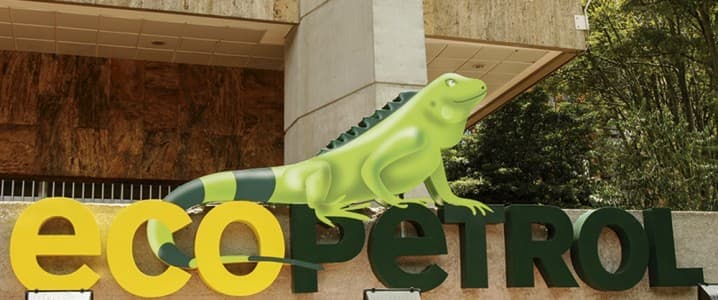Colombia's state oil company, Ecopetrol SA, has announced a setback for its ambitious Caribbean offshore gas projects. The company now expects natural gas to start flowing no earlier than 2029, marking a two-year delay from previous estimates. This delay adds to Colombia's growing energy concerns, as the country anticipates a significant natural gas shortfall beginning next year.
The current supply-demand gap for natural gas is around 12% and is predicted to widen to a substantial 30% by 2026. This looming energy crisis has prompted Ecopetrol to increase its investment in offshore drilling, allocating a record $300 million this year. The company's offshore head, Elsa Jaimes, highlighted the urgency of accelerating gas production to mitigate the shortfall.
While offshore gas typically takes 10 to 15 years to reach market, Ecopetrol is actively working to shorten this timeframe. One of the most promising projects is the Tayrona block, a joint venture with Brazil's Petrobras. This block could be the first to begin production due to its relatively simpler land infrastructure requirements compared to other projects, such as the one with Shell Plc. Currently, Ecopetrol and Petrobras are drilling the Uchuva-2 well in the Tayrona block, anticipating results on its gas potential by year's end.
Ecopetrol's CEO, Ricardo Roa, had previously expressed hopes of seeing gas flowing from offshore wells as early as 2027. However, this timeline is contingent upon obtaining environmental licenses and securing approval from local communities, which could take up to three years. As Jaimes noted, "The timing isn't just up to us. We need everyone's help."
Colombia's overall energy strategy is currently facing a complex balancing act. Despite President Gustavo Petro's commitment to a climate-focused agenda, including halting new drilling licenses, the government is simultaneously striving to increase oil production. The Energy Ministry aims to boost output to 1 million barrels per day by revitalizing underutilized exploration blocks. This effort is crucial, as oil and coal contribute significantly to Colombia's economy, accounting for half of its total exports.
The delay in the Caribbean offshore gas projects adds another layer of complexity to Colombia's energy landscape. While the government focuses on boosting oil production, the country faces a growing natural gas deficit, demanding swift action to mitigate the looming energy crisis. The future of Colombia's energy sector will depend on navigating this complex web of economic, environmental, and social considerations.
Article
Business

Colombia's Offshore Gas Dreams Delayed: Flow Not Expected Until 2029

